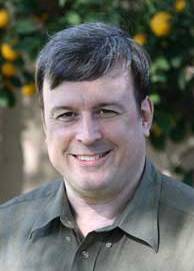Adams, John, 1735-1826. The ‘American Revolution‘, Letter to Hezekiah Niles, first editor of the National Register. Quincy, February 13, 1818. First published in Niles’ Weekly Register, v. 2, n. 14, March 7, 1818.
Continued:
Another gentleman who had great influence in the commencement of the revolution, was Doctor Jonathan Mayhew, a descendant of the ancient governor of Martha’s Vineyard. This divine had raised a great reputation both in Europe and America, by the publication of a volume of seven sermons, in the reign of king George the second, 1749, and by many other writings, particularly a sermon in 1750, on the thirtieth of January, on the subject of passive obedience and non-resistance; in which the saintship and martyrdom of king Charles the first are considered seasoned with wit and satire, superior to any in Swift or Franklin. It was read by every body; celebrated by friends, and abused by enemies. During the reigns of King George the first, and King George the second; the reigns of the Stuarts, the two Jameses, and the two Charleses, were in general disgrace in England. In America they had always been held in abhorrence. The persecutions and cruelties suffered by their ancestors under those reigns, had been transmitted by history and tradition; and Mayhew seemed to be raised up to revive all their animosities against tyranny in church and state, and at the same time to destroy their bigotry, fanaticism and inconsistency. David Hume’s plausible, elegant, fascinating and fallacious apology, in which he varnished over the crimes of the Stuarts, had not then appeared. To draw the character of Mayhew, would be to transcribe a dozen volumes. This transcendant genius, threw all the weight of his great fame into the scale of his country, in 1761, and maintained it therewith zeal and ardor, till his death, in 1766. In 1763 appeared the controversy between him and Mr. Apthorp, Mr. Caner, Dr. Johnson and Archbishop Seeker, on the charter and conduct of the society for propagating the gospel in foreign parts. To form a judgment of this debate, I beg leave to refer to a review of the whole, printed at the time, and written by Samuel Adams; though by some, very absurdly and erroneously, ascribed to Mr. Apthorp. If I am not mistaken, it will be found a model of candor, sagacity, impartiality, and close, correct reasoning.
If any gentleman supposes this controversy to be nothing to the present purpose, he is grossly mistaken. It spread an universal alarm against the authority of parliament. It excited a general and just apprehension that bishops and diocesses and churches, and priests and tythes, were to be imposed on us by parliament. It was known, that neither king, nor ministry, nor archbishops, could appoint bishops in America, without an act of parliament; and if parliament could tax us, they could establish the Church of England, with all its creeds, articles, tests, ceremonies and tythes, and prohibit all other churches, as conventicles and schism shops.
Nor must Mr. Cushing be forgotten.—His good sense and sound judgment, the urbanity of his manners, his universal good character, his numerous friends and connections, and his continual intercourse with all sorts of people, added to his constant attachment to the liberties of his country, gave him a great and salutary influence from the beginning, in 1760.
Let me recommend these hints to the consideration of Mr. Wirt, whose life of Mr. Henry I have read with great delight. I think, that after mature investigation, he will be convinced that Mr. Henry did not “give the first impulse to the ball of independence,” and that Otis, Thatcher, Samuel Adams, Mayhew, Hancock, dishing, and thousands of others, were labouring for several years at the wheel, before the name of Henry was heard beyond the limits of Virginia.
If you print this, I will endeavour to send you something concerning Samuel Adams, who was destined to a longer career, and to act a more conspicuous, and, perhaps, a more important part, than any other man. But his life would require a volume. If you decline printing this letter, I pray you to return it as soon as possible to,
Sir, your humble servant,
JOHN ADAMS.


















